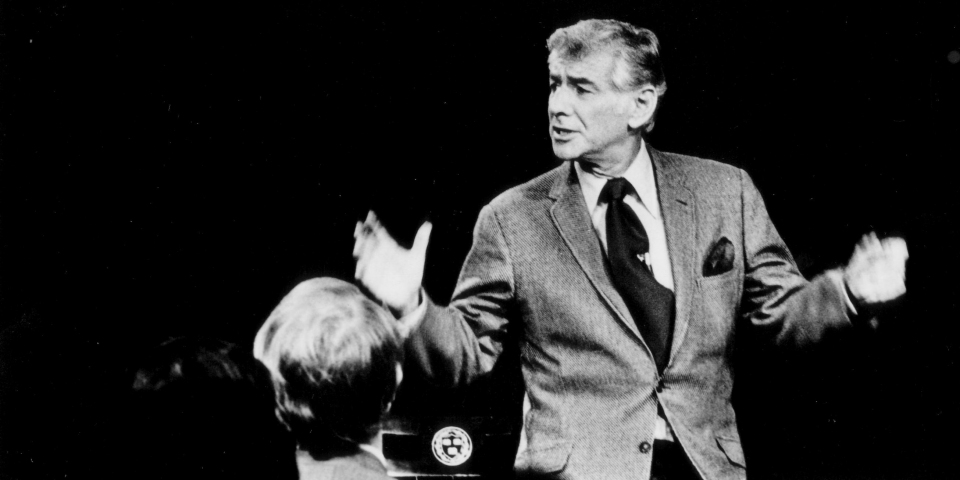Yesterday's Times Quick Cryptic Crossword had a clue that referred to the American composer Charles Ives. I remember him most from his piece The Unanswered Question, which was used by Leonard Bernstein as the title of a fantastic series of lectures about (linguistics, poetry and) music, which taught me a lot I never learned in
Music or English classes at school. They also introduced me to some great music and poetry. They are all available on YouTube via this playlist or these individual links.
- Lecture 1 - Musical Phonology
- Lecture 2 - Musical Syntax
- Lecture 3 - Musical Semantics
- Lecture 4 - The Delights and Dangers of Ambiguity
- Lecture 5 - The XXth Century Crisis
- Lecture 6 - The Poetry of Earth
I watched the first again last night and will work my way through them. Was it really 48 years ago they were filmed? It's noticeable, though, how the Boston Symphony Orchestra of the time consisted of almost exclusively middle-aged white men, reminding me of how unusual it was for my Aunt Rosemary to be a professional trumpeter with an orchestra at the time.
Edit: I will add a few comments on the lectures as I go through them...
Lecture 1 - A great and easy to follow explanation and demonstration of the harmonic series and the different scales you find. An introduction to me at the time of linguistics. I liked the demonstration of "Ma" and the children's taunt.
Lecture 2 - I enjoyed the discussion around parsing and the concept of "deep structure". The mapping from linguitic to musical concepts sort of works and the demonstrations are again great.
Lecture 3 - There was a lot of linguistics at the start. The fun bit was the deconstruction of the first movement of Beethoven's 6th Symphony. Fascinating.
Lecture 4 - This is where the rubber really hits the road on exploring the evolution of musical metaphor. Some great examples and performances including a Chopin Mazurka, Berlioz Romeo and Juliet, Wagner's Prelude and Liebestod from Tristan and Isolde and, to finish with, Debussy's Prelude à l'après-midi d'un faune. Great stuff.
Lecture 5 - A wonderful selection of musical examples discussing the "Whither Music" question, including the Ives piece, Ravel's Rhapsodie Espagnole, Beethoven's 9th Symphony, Mahler's 9th Symphony and non-tonal music including the serial music system as laid out by Arnold Schoenberg. It also introduced me to the sublime Berg Violin Concerto. Another great lecture.
Lecture 6 - Extraordinary! Did anyone before this know that Stravinsky's Oedipus Rex is based musically on Verdi's Aida? This is the lecture that got me hooked on the music of Igor Stravinsky. And the conclusion of the series that tonality isn't dead is borne out by the new classical music of the last 40 years. Great stuff!

No comments:
Post a Comment